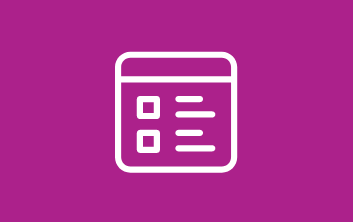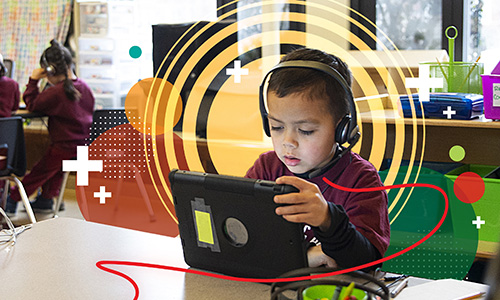Blog article
How the Primary Grades Can Save Us: Growing American Reading Comprehension
2018

Description
When recent NAEP results came out, the bleak headline was that American students are not getting better at reading comprehension. When the NAEP folks convened a panel of reading experts in early April, the primary grades got called out as one potential culprit. So what needs re-evaluating in K-3 literacy? One reasonable place to look is at oral reading fluency and the foundational skills that feed word decoding.
See MoreRelated Topics


Spanish MAP Reading Fluency content guide
This document presents the test design and specifications for Spanish MAP Reading Fluency.
By: Sara Velazquez, John Newburn, Fang Peng, Carmen Hall, Kayla McLaughlin, Teresa Krastel
Products: MAP Reading Fluency, MAP Spanish
Topics: Test design, Academic content, Assessments in Spanish


English MAP Reading Fluency technical report
This technical report documents the processes and procedures employed by NWEA to build and support the English MAP Reading Fluency assessment.
By: Fang Peng, Kang Xue, Carmen Hall, John Newburn
Products: MAP Reading Fluency
Topics: Test design, Computer adaptive testing, Reading & language arts


Predicting Amira Reading Mastery Based on NWEA MAP Reading Fluency Benchmark Assessment Scores
This document presents results from a linking study conducted by NWEA in May 2024 to statistically connect the grades 1–5 English Amira Reading Mastery (ARM) scores with the Scaled-Words-Correct-Per-Minute (SWCPM) scores from the MAP Reading Fluency benchmark assessment taken during Fall and Winter 2023–2024.
By: Fang Peng, Ann Hu, Christopher Wells
Products: MAP Reading Fluency
Topics: Computer adaptive testing, Early learning, Measurement & scaling, Reading & language arts


MAP Reading Fluency with Coach Evidence Base
This document provides an overview of the research underlying MAP Reading Fluency with Coach’s AI-powered intelligent reading tutor and the research on key elements of early literacy instruction. It describes the components of the MAP Reading Fluency with Coach pedagogy and the research base supporting each component.
By: Amy Endo
Products: MAP Reading Fluency
Topics: Early learning, Empowering educators, Innovations in reporting & assessment, Reading & language arts


COVID-19 in the early elementary years: A comparison of achievement in spring 2019 and spring 2022
New NWEA research provides further evidence of the challenges that young learners are currently facing from the disruptions of the COVID-19 pandemic.
By: Megan Kuhfeld, Karyn Lewis
Topics: COVID-19 & schools, Early learning, Equity


Pathways of mathematics achievement in preschool: Examining executive function and task orientation
This study used longitudinal data from a sample of 467 preschoolers to examine (1) if children’s executive function (EF) skills at the beginning of pre-K predict growth in their mathematics achievement across the pre-K year, (2) whether growth in learning behaviors, specifically task orientation, mediate the associations between EF and mathematics achievement, and (3) if there are sex differences in these associations.
By: Tara Hofkens, Jessica Whittaker, Robert Pianta, Virginia Vitiello, Erik Ruzek, Arya Ansari
Topics: Early learning, Math & STEM


This study evaluates the effects of asking items throughout the passage (i.e., embedding items) to achieve a more precise measure of reading comprehension by removing barriers for students to demonstrate their understanding. Results showed a significant impact of embedding comprehension items within reading passages on the measurement of student achievement in comparison to answering items at the end of the passage.
By: Meg Guerreiro, Janice Johnson
Topics: Equity, Innovations in reporting & assessment, Reading & language arts


